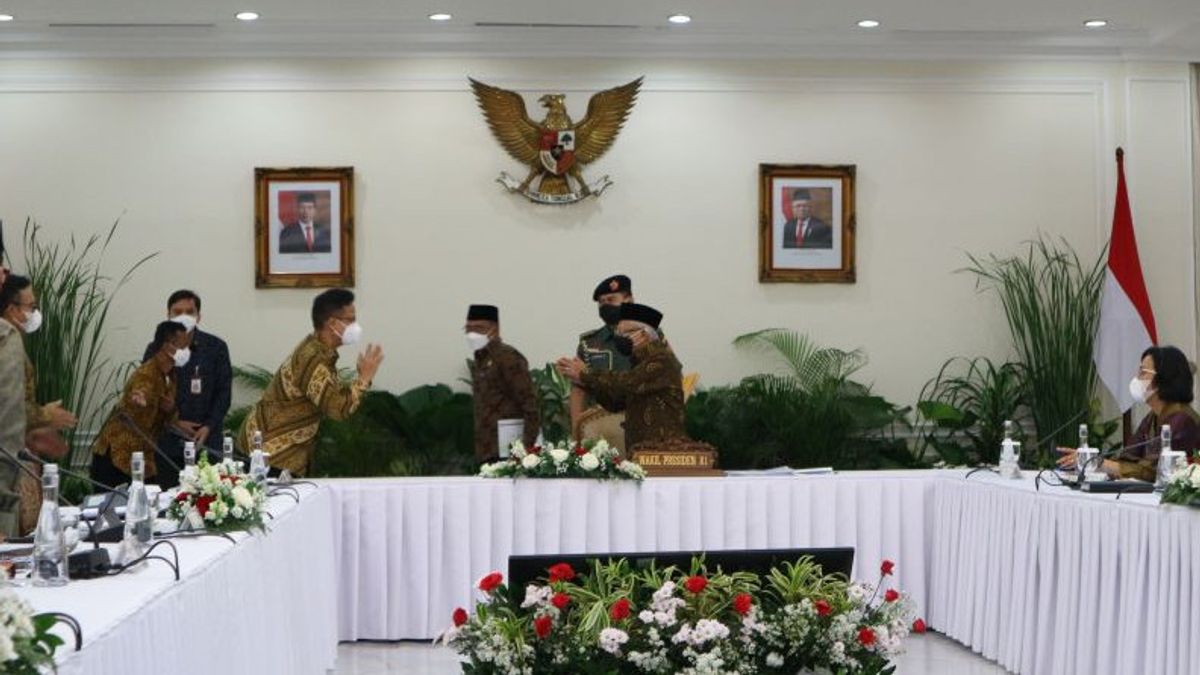JAKARTA - Minister of Health Budi Gunadi Sadikin revealed that the spread of acute hepatitis is not like the transmission of pandemic diseases.
"The conclusion is that until now the spread is not like pandemic diseases because if it was contagious, I would say that friends would get it, this didn't happen," said Budi Gunadi at the Vice Presidential Palace, Jakarta, as reported by Antara, Wednesday, May 11.
Previously, Budi Gunadi said that there were 15 suspected cases of acute hepatitis in Indonesia, the first three cases were reported on April 27, 2022 or a few days after the WHO said there had been an extraordinary incident in Europe.
"We have spoken with the American CDC (Centers for Disease Control and Prevention), the British CDC, the clustering did not happen. That is number one. So this is not as contagious as many people imagine," said Budi Gunadi.
According to Budi Gunadi, cases of acute hepatitis in the UK and the US are still looking for the cause of the disease.
"It's still not necessarily Adenovirus, because there are also toddlers who get it but there's no Adenovirus, if this is true Adenovirus definitely should be there, so we're looking for whether it's true because of the virus or due to a combination of poor environmental health or genetics, so at the moment we can't draw any conclusions. , but what is certain is that the transmission is much lower than others," explained Budi.
Budi also explained how to prevent the spread of acute hepatitis by the community.
"The important thing is to wash your hands diligently before entering the food, if the food can be cooked well, that's all, especially for children," added Budi.
Budi also asked the public not to overreact to the acute hepatitis.
"Acute hepatitis in us is 15 (cases) out of 270 million (population), different from COVID-19 which is now 200 (cases), so this is far below COVID-19 transmission, maybe under smallpox, under cholera, tuberculosis so that Don't overdo it and until now it has not been proven that the transmission is caused by a virus," said Budi.
The Ministry of Health has issued a Circular (SE) regarding the Precautions for Finding Cases of Acute Hepatitis of Unknown Aetiology (Acute Hepatitis Of Unknown Aetiology).
To prevent transmission of acute hepatitis, through the respiratory tract, the Ministry of Health also asks the public to apply COVID-19 health protocols such as wearing masks, maintaining distance and reducing mobility.
Another effort is the understanding of parents about the early symptoms of acute hepatitis, namely nausea, vomiting, abdominal pain, diarrhea, sometimes accompanied by low-grade fever. Furthermore, the symptoms will get worse, such as thick urine like tea and pale white stools.
If the child experiences these symptoms, parents are asked to immediately check the child to the nearest health service facility to get an initial diagnosis.
Do not wait until the yellow symptoms appear even until you lose consciousness because this condition indicates that the hepatitis infection is very severe. If it is too late to get medical treatment, then the momentum of the doctor to help the patient is very small.
The English, Chinese, Japanese, Arabic, and French versions are automatically generated by the AI. So there may still be inaccuracies in translating, please always see Indonesian as our main language. (system supported by DigitalSiber.id)













